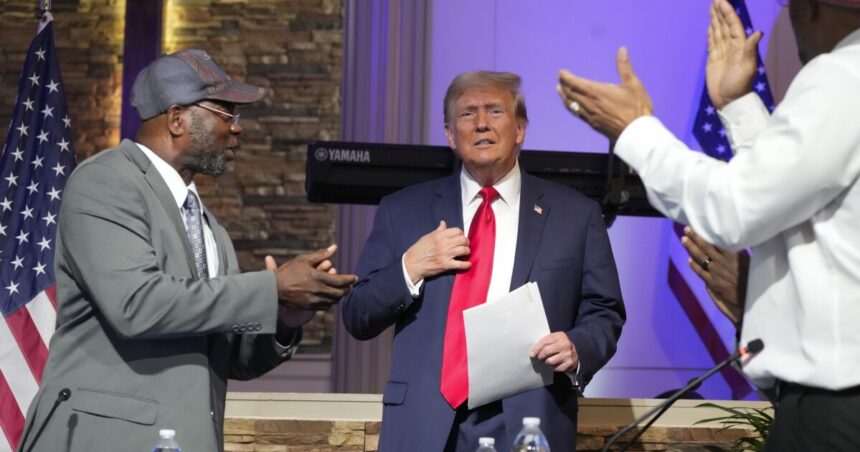Former President Donald Trump made back-to-back stops on Saturday to appeal to Black voters and a conservative group that has been accused of attracting white supremacists in an effort to unite divergent interests in battleground Michigan.
Trump first hosted a roundtable at an African American church in Detroit, then spoke at the “People’s Convention” of Turning Point Action, a group with ties to various extremists, according to the Anti-Defamation League.
Addressing a crowd of conservative activists at the convention hall, Trump expressed gratitude for their support and claimed that with their help, he would secure a victory in Michigan in the upcoming election.
Shortly before Trump’s speech, white supremacist Nick Fuentes was escorted out of the venue after entering with a group of supporters. Fuentes’ presence had caused controversy after he had a private lunch with Trump and Kanye West in 2022.
At a smaller event earlier in the day at 180 Church, Trump interacted with supporters of the Black Conservative Federation group, emphasizing the importance of their support and promising to return for a sermon in the future.
Trump’s campaign in Michigan highlights the shifting political landscape as he aims to attract more Black voters with his economic and security platform. He criticized Biden’s record with the Black community and promised to revitalize industries and address crime in African American neighborhoods.
While Democrats continue to criticize Trump’s rhetoric and associations with extremist groups, Trump’s support among Black voters appears to be growing. Biden’s approval among Black adults has declined, providing an opportunity for Trump to make inroads in a crucial voting demographic.
Trump’s appearance at the Turning Point conference, despite controversy surrounding the group, reflects his efforts to appeal to a broader base of supporters. The event featured prominent Republican figures and highlighted the group’s influence in mainstream politics.
As Trump rallies his supporters and makes his case to voters, the competition for key demographics, including Black voters, intensifies as the election approaches.





